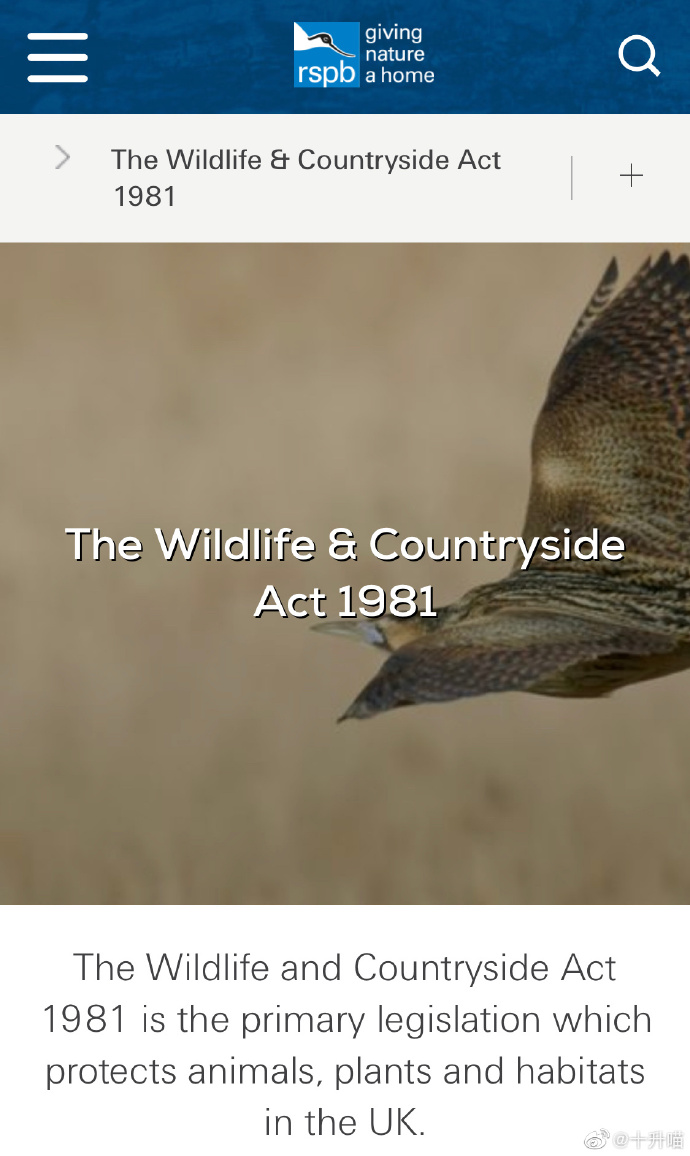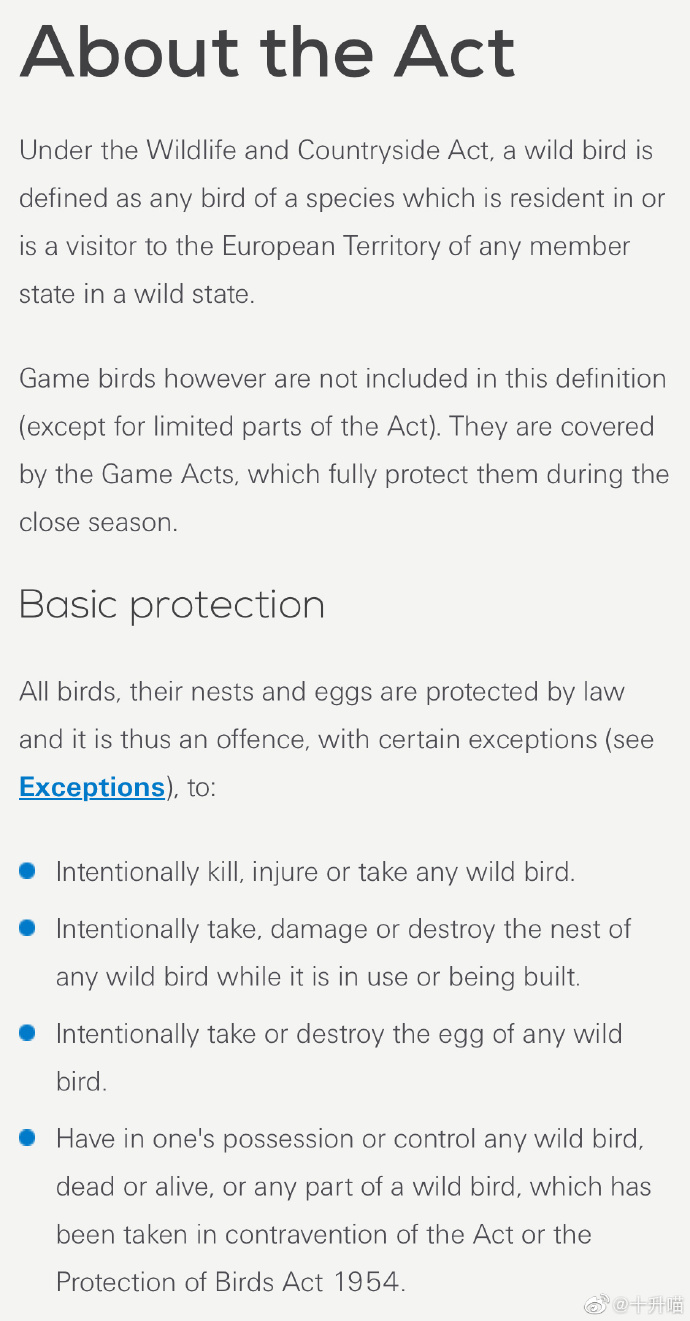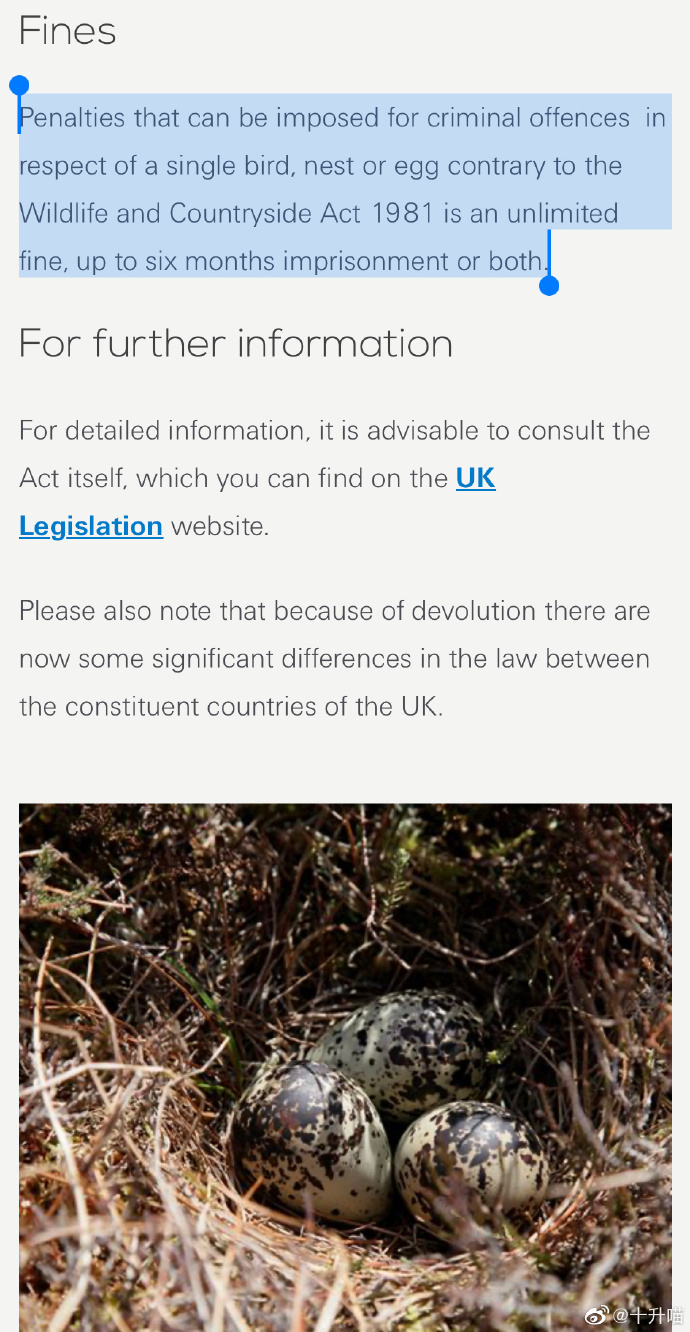C4.65 Harming Protected Wildlife and Plants¶
Is it illegal to harm wildlife and wild plants in the UK?Yes, it is.
In the UK, it is illegal to harm wildlife and certain wild plants, such as wild birds, wild squirrels, hares, wild cats, wild dogs, and wild flowers.
Penalties for the offence include:
An unlimited fine
Imprisonment for up to 6 months, or both
The UK enacted The Wildlife and Countryside Act in 1981, which is the primary legislation for protecting animals, plants, and habitats in the UK. For more detailed information about this Act, you can visit the official website: https://www.rspb.org.uk/birds-and-wildlife/advice/wildlife-and-the-law/wildlife-and-countryside-act/
The Wildlife and Countryside Act is mainly enforced by The Royal Society for the Protection of Birds (RSPB).
[Angry Pango] Note 1: Harming wildlife includes damaging their habitats. Even if wild birds nest on any part of your property—including trees in your garden—they are protected. It is illegal to remove or destroy the nest, harm the birds, drive the birds away from the nest (even without damaging it), keep them in captivity, sell the wild birds, possess a bird’s carcass without a reasonable explanation, or set up any device intended to trap wildlife.
[Angry Pango] Note 2: Harm caused by fights between animals is not illegal, provided you do not take any intentional action to harm the wildlife. This means you must not train or deliberately allow your pets to harm wild animals.
[Angry Pango] Note 3: An unlimited fine means there is no upper limit. Moreover, the penalty is not limited to a fine—depending on the circumstances, offenders may face both a fine and imprisonment.
Therefore, it is advisable not to arbitrarily disturb or harm wildlife, or pick wild plants at will. Some areas in the UK are designated as protected reserves, where all plants are protected. Additionally, if you own or plan to buy property in the UK, try to avoid properties with existing bird nests. If you notice signs that birds are about to nest on your buildings or garden trees, take preventive measures promptly. Once birds have successfully nested, you will face numerous troubles—you cannot harm or disturb the nest or the birds, which will make renovating or selling the property extremely difficult, time-consuming, and costly


